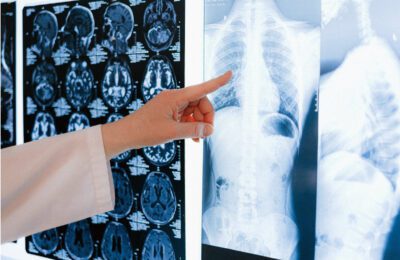People seldom consider getting hurt unless someone close to them or themselves is hurt. You might be uninformed about small ailments, but when it comes to your head, you should be prepared. Here are some things to keep in mind if you’ve been in an accident.
Slow Processing
When the brain is harmed in a vehicle accident, it must defend itself by blocking out external inputs. To put it another way, the brain shuts down. Individuals may not identify the signs of traumatic brain injury at first, but when they begin to heal from their physical injuries, they frequently comment that they were so injured that they didn’t know what they were doing or saying. Your consciousness levels may be low during such times. It’s tough to tell what you’re missing until your brain begins to mend and the “fog” lifts.
Your processing speed can be significantly slowed after a brain injury. Even if you believe you know how to perform something, you can be startled to learn that your body is eager but your brain is slow. Do not be ashamed or afraid. As you progress through the early phases of recovery, rely on individuals you can trust.
Physical and Mental Fatigue
Physical weariness might come as a result of needing to work harder to complete physical duties like cleaning the house or working in the yard. Physical exhaustion worsens during the day and is generally alleviated by rest or sleep. When you exert a mental load, such as attempting to focus, read, or solve issues, you may experience mental or cognitive tiredness. Before your brain damage, you may have been able to execute these activities instinctively, but now they may require more work, and your accuracy and efficiency may have been reduced.
Legal Action
In a personal injury case, brain injuries are frequently the most difficult to establish. They are frequently invisible, victims are unaware of their symptoms, and doctors disregard the symptoms that patients mention. If you’ve had a vehicle accident and sustained a mild traumatic brain injury, you may require the assistance of a lawyer who specializes in personal injury law. You may hire a Denver brain injury lawyer, who will perform a comprehensive investigation into the incident that caused the TBI to identify the at-fault parties and try to hold them responsible. When choosing a brain injury lawyer, it’s critical to ask the proper questions because you’ll be working closely with this individual and want to be confident in their abilities and approach.
External Injuries
Take a few minutes to look for external injuries if you or someone else has been in an accident that impacts their head or face. This can warn you of injuries that need immediate treatment and first assistance, as well as those that could develop into a more serious condition. Cuts or abrasions can produce substantial bleeding because the skull has more blood arteries than any other portion of the body. Bleeding from the nose or ears, fluid leaks, black-and-blue discoloration below the eyes or ears, or bruising are all signs you should be aware of.
Headache
After a vehicle accident, one of the most frequent signs of mild traumatic brain injury is headaches. Posttraumatic headaches and/or muscular tension headaches can be caused by head trauma or whiplash injuries to the neck. Headache discomfort may be painful and interfere with regular activities. Headaches can make it difficult to communicate with family, work, or participate in social or leisure activities. Headaches are usually divided into numerous categories and can range in severity from moderate to severe, as well as being mild, acute, or pulsating.
Vomiting
A typical side effect of a head injury is vomiting. While solitary bouts of vomiting do not generally indicate something dangerous, vomiting can be related to skull fractures and hematomas.
As a result, seeing a doctor if someone is vomiting after a head injury is the recommended action to take. Various scans may be used by doctors to identify whether or not major damage has occurred. Even if no major brain damage is discovered, nausea and vomiting can persist for several days following a head injury.
Breathing Problems
Respiratory difficulties will result from damage to the parts of the brain that control breathing. The brain stem and the motor cortex are two parts of the brain that aid in breathing. A pulmonologist or respiratory therapist can assist you in determining the most effective treatment for your breathing issues.
Certain medications aid in the regulation of respiratory patterns and the stimulation of brain stem activity. In severe circumstances, the patient will require a ventilator until their breathing returns to normal.
Someone who has been in a car accident may appear entirely fine just after the event. Even so, when the internal brain hemorrhage progresses and worsens, a life-or-death emergency may arise in minutes or hours. Confusion, nausea, and headache are common signs of a brain hemorrhage. If you or someone close is experiencing these symptoms as a result of a head injury sustained in an accident, get medical attention right once.
